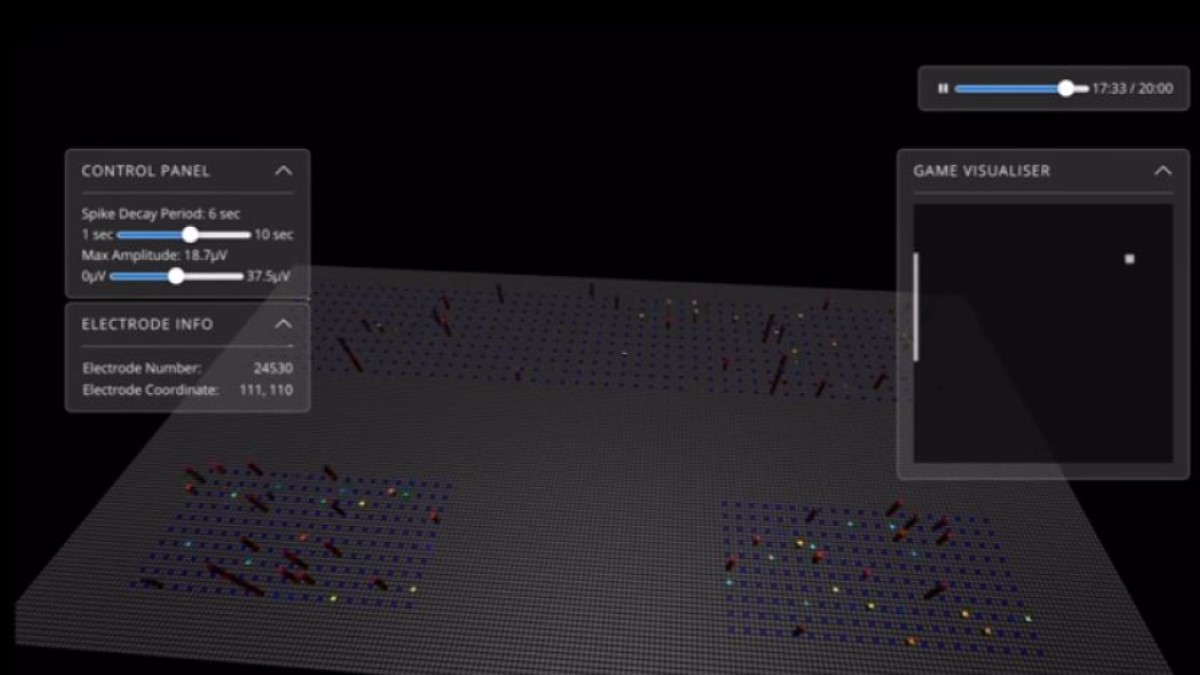As reported in an article from New Scientist, researchers at Cortical Labs have placed several networks of neurons into dishes and then into what can be briefly explained as a less complicated version of the Matrix.
And they’ve learned that these brain cells can learn Pong much faster than any existing Artificial Intelligence. The researchers explained that they’ve grown groups of human neutrons into organoid mini-brains and placed them on micro-electrode interfaces.
Those interfaces then pulse with electricity, and they effectively convinced the mini-brains that they’re ping-pong bats within a single-player game of Pong.
The chief scientific officer at Cortical Labs, Brett Kagan stated, “We think it’s fair to call them cyborg brains,” adding that it’s the first time such neuron networks have performed this sort of task. “We often refer to them as living in the Matrix,” said Kagan.
From the above video, you can see the brain cells and software in action. It explains how “pulses of electrical activity from micro-electrode interfaces simulate the game world.
Each of the cyborg mini-brain acts as if it is the ping-pong bat hitting the ball. The video adds that “while the mini-brains are not as good at Pong as computer-based AIs, they do learn faster.”
Cortical Labs stated that it would take an AI up to 90 minutes to learn Pong. Whereas it would take these mini-brains roughly 5 minutes to learn it. However, an AI would go on to become far better at the task once they’ve learned it.
Cortical Labs aims to “solve problems in unfamiliar situations” as this could lead to the creation of synthetic brains. Studies like this could create a push for the use of live neutrons in traditional computing as well.
The most impressive aspect is how fast these mini-brains learn how to do this. And there’s potential that further down the line they can be used to solve current issues with autonomous robotics.
Featured Image Source: New Scientist
Isa Muhammad is a writer and video game journalist covering many aspects of entertainment media including the film industry. He's steadily writing his way to the sharp end of journalism and enjoys staying informed. If he's not reading, playing video games or catching up on his favourite TV series, then he's probably writing about them.



































